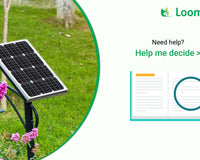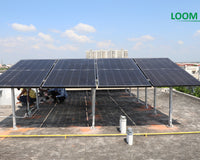Acquiring a solar system on Equated Monthly Instalments (EMI) in India can be a sensible approach to make the investment more manageable. Financing a solar system requires careful consideration to ensure a cost-effective and sustainable investment. Several options are available to help you make the most informed decision.
Government Subsidies and Incentives: Government offers various subsidies and incentives for solar installations. The Ministry of New and Renewable Energy (MNRE) provides financial support to promote solar adoption, making it an attractive option to reduce upfront costs.
Bank Loans: Many banks offer solar loans tailored to meet the needs of homeowners and businesses. These loans typically have competitive interest rates and longer repayment periods, making them a feasible option for financing.
Personal Savings: Using personal savings can eliminate the need for loans and interest payments. While this may require a significant upfront investment, the long-term savings on energy bills can make it a financially rewarding option.
Leasing: Leasing allows you to use a solar system without owning it. While you won't benefit from government incentives, you can enjoy reduced electricity bills. However, you won't own the system or its long-term benefits.
Crowdfunding: Some online platforms facilitate crowdfunding for solar projects. This can be a community-driven approach to financing, allowing multiple people to invest in a solar system's installation.
Ultimately, the right financing option depends on your financial situation, long-term goals, and the specific incentives available in your region. It's advisable to conduct thorough research, compare costs, and consult with solar experts or financial advisors to determine the best strategy for financing your solar system in India.












